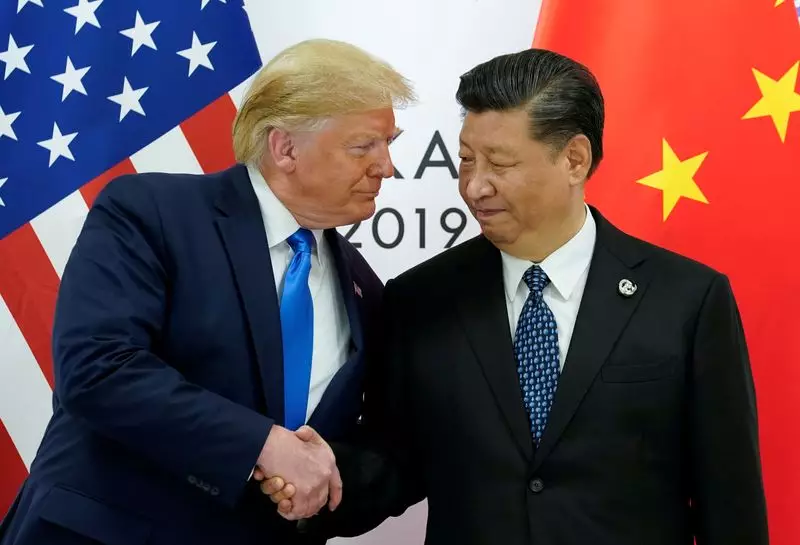In the wake of Donald Trump’s recent presidential victory, the global stage is ablaze with speculation regarding the future of the delicate relationship between China and the United States. President Xi Jinping’s official congratulation to Trump comes laden with a palpable mix of hope and caution. As these two colossal nations stand on the precipice of renewed engagement, the specter of a resurgent trade war looms large. With tariffs threatening to spiral out of control, one must ponder whether the diplomatic overtures between Xi and Trump will yield fruitful cooperation or rehash old conflicts.
The relationship between the U.S. and China has long been characterized by a series of highs and lows, defined by economic interdependence juxtaposed with political tension. Since the advent of the Trump administration in 2016, ties have devolved, reaching unprecedented lows as tariffs escalated and diplomatic dialogues faltered. Trump’s first term famously ignited a trade war aimed at restructuring the bilateral economic framework, focusing on China’s trade practices and intellectual property theft. The introduction of significant tariffs affected various sectors, from manufacturing to agriculture, with both nations bearing the brunt of the conflict.
As the Biden administration took the helm without dismantling Trump’s trade agenda, it became clear that issues festering under the surface were far from resolved. The geopolitical narrative surrounding Taiwan, the South China Sea, and human rights concerns tangled into a complex web, complicating any efforts towards reconciliation. However, the recent meeting between Xi and Biden suggested an opening—echoing a potential thaw in their relationship, albeit in a tightly orchestrated setting.
Trump’s recent electoral victory heralds the possibility of a return to the aggressive trade policies of his first term, with the inclusion of fresh and potentially more punitive tariffs on Chinese goods. His indications of wanting to impose tariffs as high as 60% raise alarms in Beijing, particularly at a time when the Chinese economy grapples with numerous challenges, including a declining property market and sluggish domestic demand. These looming tariffs are not merely economic tools; they represent a broader strategic maneuvering that could aggravate existing tensions.
Xi’s subdued congratulatory message reflects the complexities of this evolving narrative. Where he once articulated a vision of cooperative progress with optimism, his current language has shifted to emphasize the importance of stability and dialogue. This pivot is not just diplomatic nicety; it underscores the urgency of fostering an environment that prioritizes mutual coexistence over adversarial posturing. The commerce ministry’s willingness to nurture robust economic relationships signifies a recognition of shared stakes, even in a landscape rife with potential hostilities.
The international community watches this relationship closely, aspiring to see a framework that prioritizes stability over chaos. Both Xi and Trump share the responsibility of being leaders not only of their respective nations but also of two global powers whose actions reverberate worldwide. As many nations grapple with the consequences of trade wars, rising nationalism, and global supply chain disruptions, fostering an atmosphere of cooperation is essential for economic stability on a larger scale.
China Daily’s recent editorial encapsulates this sentiment, arguing that Trump’s second presidency presents an unprecedented chance to reset the narrative. However, this view is tempered with a note of caution, warning that mistaken perceptions of each nation could further cloud relationships. A pragmatic approach, focused on addressing misconceptions and building dialogue frameworks, is paramount for navigating the intricate geopolitical landscape that lies ahead.
As we await the dawn of a new chapter in the U.S.-China saga, the uncertainty surrounding diplomatic actions and trade policies leaves much to be desired. The goodwill articulated by Xi may seem like a counterbalance to Trump’s brash rhetoric, yet historical precedence suggests wariness is warranted. The potential for cooperation and stability exists, but it hinges on a fine-tuned approach that values mutual respect over rivalry. Only time will reveal if this moved rhetoric translates into actions that lead to a constructive and enduring relationship between the two nations. The stakes are high, but so too is the opportunity for transformative diplomacy.

